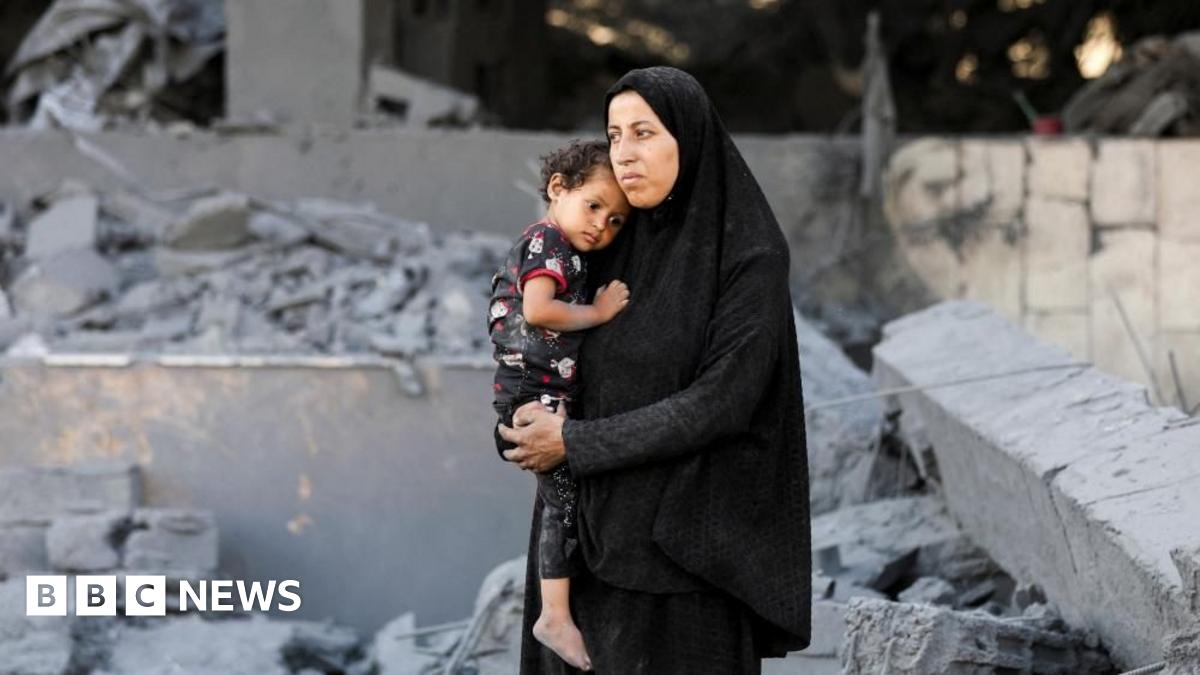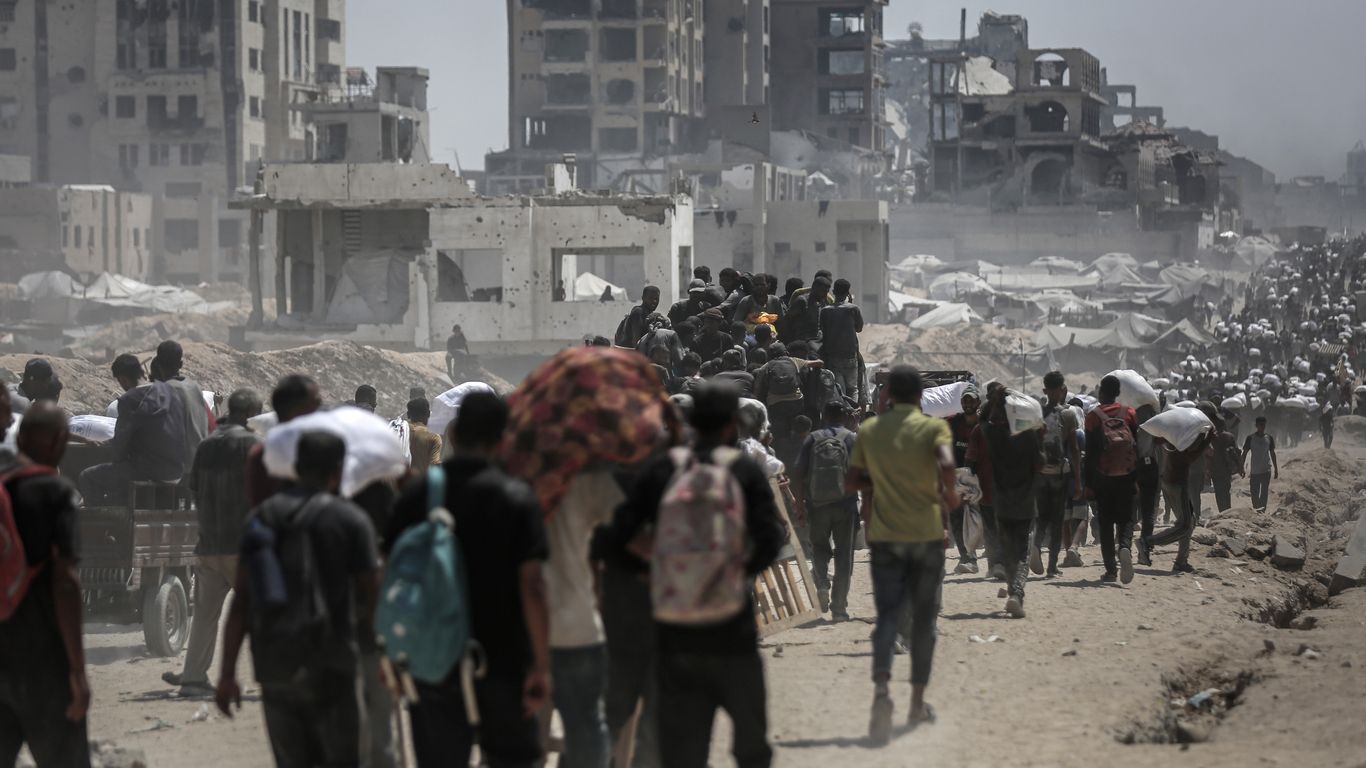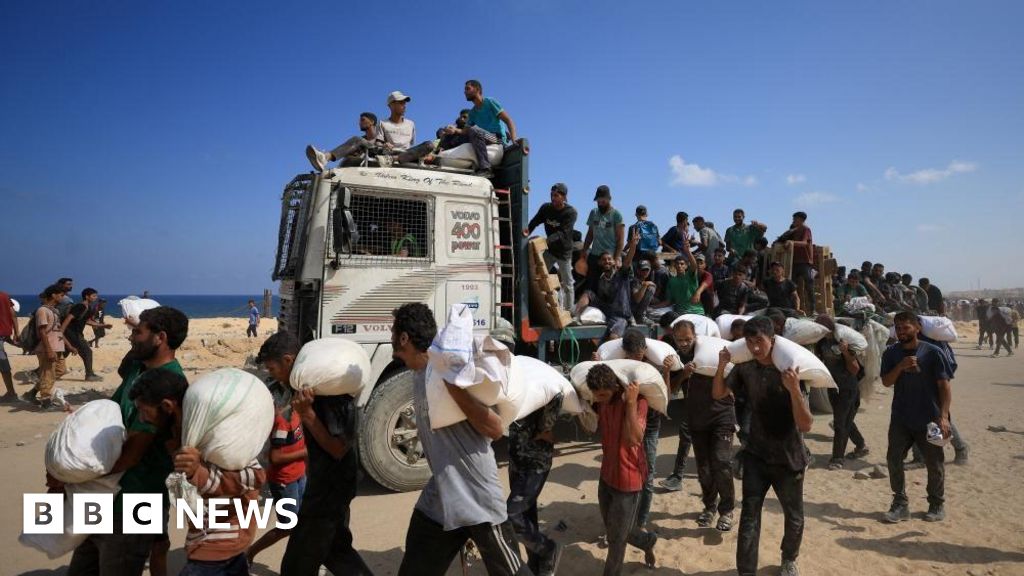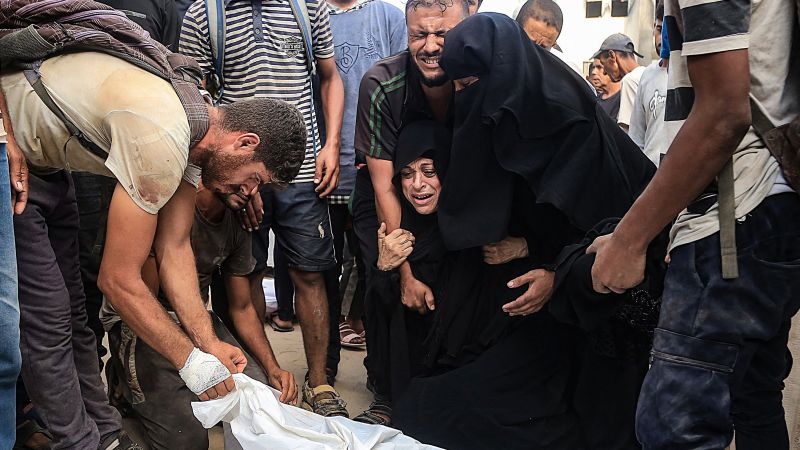Israel Cabinet Approves Plan to Occupy Gaza City
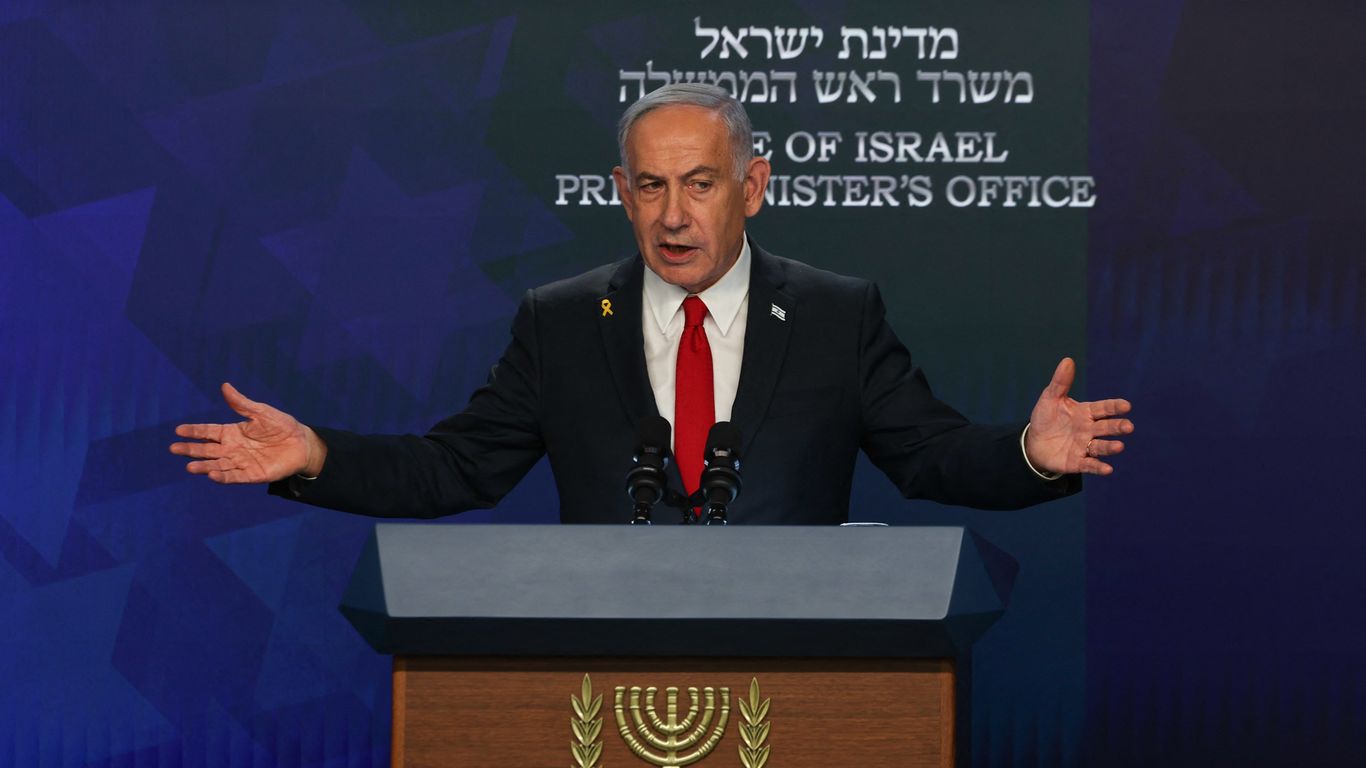
Introduction
After months of escalating tensions, Israel's Cabinet has approved a new plan to occupy Gaza City, the first step in a potential offensive that could lead to the occupation of the entire Gaza Strip by the Israel Defense Forces.
The Plan
The plan, approved by Prime Minister Benjamin Netanyahu and his Cabinet, involves a multi-phased approach to take control of Gaza City and eliminate Hamas, the militant group that has been launching rockets into Israel. This move comes after weeks of protests and violence along the Gaza border, with Israeli officials citing the need to protect their citizens from the ongoing attacks.
Possible Consequences
The potential occupation of Gaza City and the entire Gaza Strip has sparked concern and criticism from the international community. Many fear that this could escalate into a full-blown conflict between Israel and Palestine, while others argue that it is a necessary measure for Israel's security. The decision has also been met with backlash from Palestinian leaders, who have condemned the plan as an act of aggression and a violation of their sovereignty.
About the People Mentioned
Benjamin Netanyahu
Benjamin Netanyahu, born on October 21, 1949, in Tel Aviv, Israel, is a prominent Israeli politician and diplomat who has served as Prime Minister of Israel three times (1996–1999, 2009–2021, and from 2022 onwards). He began his career in the Israeli military's special operations and later transitioned into politics in the late 1980s, joining the Likud party[1][2]. Netanyahu first became prime minister in 1996, during which time he signed the Hebron and Wye Accords, advancing peace efforts with the Palestinians. His administration focused on economic reforms such as government privatization, liberalizing currency regulations, and reducing deficits. After losing the 1999 election, he served as foreign minister and finance minister before reclaiming the Likud leadership in 2005[1][3][4]. Returning as prime minister in 2009, Netanyahu formed a national unity government and proposed a demilitarized Palestinian state recognizing Israel as the Jewish state, emphasizing security concerns. His tenure was marked by fluctuating peace negotiations with the Palestinians and contentious policies including settlement expansions. He also maintained a hawkish stance on Iran and supported the Iraq war[1][3][5]. In 2022, Netanyahu made a political comeback as prime minister, leading a coalition that included far-right parties. His leadership during this period has been pivotal amid the 2023–2024 Israel-Hamas conflict, with significant domestic and international implications[2]. Netanyahu is Israel’s longest-serving prime minister and remains a central figure in Israeli politics, known for his strong security policies, economic reforms, and complex role in the Israeli-Palestinian conflict. His career has been marked by both political resilience and controversy, reflecting his enduring influence on Israel’s domestic and foreign affairs[2][3][5].
About the Organizations Mentioned
Israel Defense Forces
The Israel Defense Forces (IDF) is the military organization responsible for the defense of Israel, comprising the army, navy, and air force. Established in May 1948, shortly after Israel's declaration of independence, the IDF was formed from three underground Zionist militias: the Haganah, Irgun, and Lehi[5]. **History and Structure**: The IDF's structure is unique, integrating air, ground, and sea forces closely. It has a strong focus on conscription, including women, and plays a significant role in Israeli society, influencing culture and politics[2]. The IDF has developed sophisticated military technologies and strategies, often collaborating with international partners like the U.S. on projects like the Arrow missile defense system[2]. **Key Achievements**: The IDF has been instrumental in defending Israel through numerous conflicts, relying on rapid mobilization and intelligence gathering[1]. Notable achievements include the development of advanced missile defense systems and the integration of technology into military operations[3]. **Current Status**: Today, the IDF is recognized as a modern and effective military force, ranked among the top 20 global military powers[4]. It continues to adapt to regional security challenges, emphasizing deterrence and early warning systems[3]. **Notable Aspects**: The IDF is known for its specialized units, such as the Paratroopers Brigade, Shayetet 13 (naval commandos), and Sayeret Matkal (special forces)[6]. The organization also supports Israel's defense industries, which include companies like Elbit Systems and Rafael Advanced Defense Systems[2]. These aspects highlight the IDF's role in both military defense and technological innovation, making it a significant player in the global defense landscape.
Hamas
**Hamas** is a Sunni Islamist Palestinian nationalist organization that functions both as a political party and a militant group, primarily operating in the Gaza Strip, which it has governed since 2007. Founded in 1987 by Ahmed Yassin amid the First Intifada, Hamas emerged from the Muslim Brotherhood and initially had covert Israeli support as a counterweight to the secular Palestinian Liberation Organization (PLO)[3][1]. It combines political governance with an armed wing, the al-Qassam Brigades, committed to armed resistance against Israel, which it refuses to recognize as a legitimate state[1][3]. Hamas’s political rise culminated in a 2006 electoral victory in the Palestinian Legislative Council, campaigning on anti-corruption and resistance platforms. After violently seizing Gaza from the rival Fatah faction in 2007, Hamas has maintained de facto control there despite international isolation and blockades imposed by Israel and Egypt[3]. Its governance has been marked by repeated conflicts with Israel, including major wars in 2008–09, 2012, 2014, 2021, and the ongoing intense conflict triggered by Hamas’s surprise October 2023 attack killing nearly 1,200 Israelis and taking hostages[1][2][3]. Hamas benefits from regional support, especially from Iran, which supplies funding and weapons, as well as financial and political backing from Turkey and Qatar. These alliances form part of a broader "axis of resistance" against Israel, which includes groups like Hezbollah and Palestinian Islamic Jihad[2]. Hamas also operates fundraising networks globally, sometimes using charities as fronts to support its military activities[4]. The group is designated a terrorist organization by many countries, including the United States, which has increased military aid to Israel following recent escalations[2][6]. Despite modifying its 1988 charter in 2017 to soften some language, Hamas continues to reject Israel’s legitimacy and pursues all forms of resistance[1]. Its enduring political
Palestinian leaders
The term **"Palestinian leaders"** primarily refers to the political figures and institutions representing Palestinians, most notably the **Palestine Liberation Organization (PLO)** and the **Palestinian Authority (PA)**. The PLO acts as the internationally recognized representative of Palestinians worldwide, while the PA governs parts of the West Bank with limited autonomy, headquartered in Ramallah[1]. The PA was established in 1994 following the Oslo Accords and is dominated by factions such as Fatah, led by Mahmoud Abbas, who simultaneously heads the PA, the PLO, and Fatah. Abbas has been a central figure since 2004 but has been criticized for authoritarian tendencies, including postponing elections since 2006 and consolidating power through decrees, which has eroded democratic governance and popular legitimacy[1][2]. The PA also faces widespread allegations of corruption, nepotism, and inefficiency, leading to diminished trust among Palestinians[1][2]. Palestinian leadership is deeply fragmented, with Hamas governing Gaza independently since 2007, rejecting the PA’s authority. Internal divisions weaken the Palestinian national movement, complicating prospects for political reform and unity. Smaller factions like the Palestinian National Initiative advocate democracy, social justice, and peaceful resistance but lack significant political power due to the dominance of Fatah and Hamas[3]. Despite challenges, Palestinian leaders continue to engage internationally. In 2025, Mahmoud Abbas addressed the UN General Assembly, condemning violence and expressing willingness to govern Gaza without Hamas involvement, while accusing Israel of severe human rights violations[5]. However, his leadership remains highly contested domestically, particularly after the recent escalations in Gaza[2]. Palestinian leadership today is at a critical juncture, balancing internal fragmentation, external pressures, and the urgent need for reform to restore legitimacy, governance capacity, and unity amid ongoing conflict and humanitarian crises[3][5].

